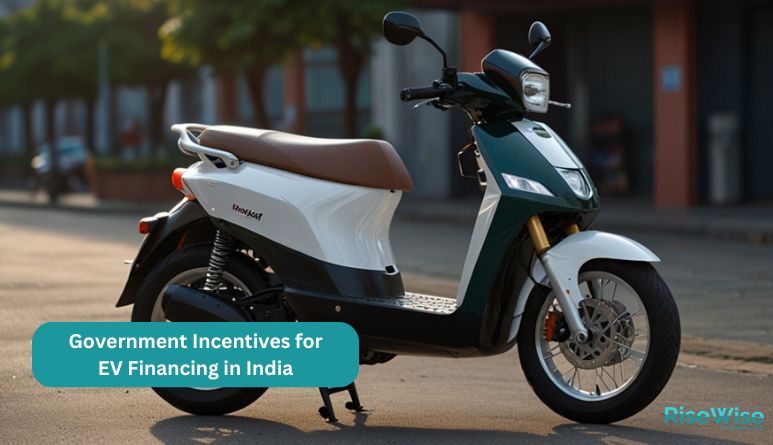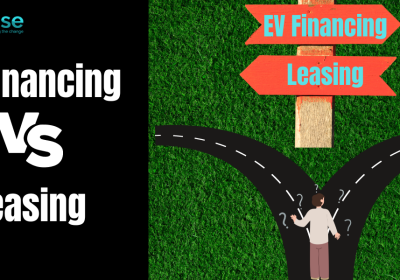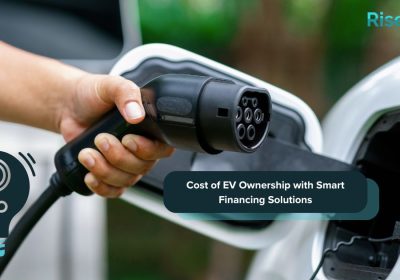As the world shifts towards sustainable energy solutions, India is making significant strides in promoting electric vehicles (EVs). A key part of this transition is government-backed incentives that make EV ownership more accessible. These incentives not only encourage EV adoption but also play a crucial role in reducing the financial burden associated with purchasing an EV. Here, we break down the key government incentives for EV financing in India that you should know about.
Table Of Content
- Why Government Incentives for EVs Matter
- Key Government Schemes and Policies Supporting EV Financing
- 1. FAME India Scheme
- 2. Income Tax Benefits
- 3. State-Level Incentives
- 4. Reduced GST on EVs
- 5. Priority Lending for EVs
- How to Maximize EV Financing Benefits
- Future Outlook for EV Financing in India
- Conclusion
- Frequently Asked Questions
- 1. Can I get a tax benefit if I buy an EV with a loan?
- 2. Are there any state-specific EV incentives available?
- 3. How can I find out if my vehicle qualifies for FAME II incentives?
Why Government Incentives for EVs Matter
The Indian government aims to position the country as a leader in the global EV revolution. By offering financial incentives, tax benefits, and subsidies, it ensures that the transition to electric mobility is affordable for consumers and beneficial for manufacturers. These initiatives are aligned with India’s larger goals of reducing carbon emissions, decreasing dependence on fossil fuels, and creating a robust ecosystem for EVs.
Key Government Schemes and Policies Supporting EV Financing
1. FAME India Scheme
The Faster Adoption and Manufacturing of Hybrid and Electric Vehicles (FAME) scheme is a cornerstone of India’s EV policy. Currently in its second phase (FAME II), this scheme offers:
- Subsidies for EV Purchase: Financial support for two-wheelers, three-wheelers, and four-wheelers used for commercial purposes.
- Incentives for EV Infrastructure: Funding for the development of EV charging stations.
- Loan Support: Encouragement for banks and NBFCs to offer low-interest loans for EVs.
Tip: If you’re considering an EV, check whether your vehicle qualifies for FAME II benefits.
2. Income Tax Benefits
Under Section 80EEB of the Income Tax Act, EV buyers can avail of a tax deduction of up to ₹1.5 lakh on the interest paid on loans taken to purchase an EV. This benefit is applicable for loans sanctioned between April 1, 2019, and March 31, 2025.
Key Highlights:
- Available for both personal and commercial EV purchases.
- Encourages buyers to opt for financing rather than paying upfront.
3. State-Level Incentives
In addition to central government policies, several states have introduced their own incentives to promote EV adoption. For example:
- Delhi: Up to ₹1.5 lakh subsidy on electric cars and exemptions on road tax and registration fees.
- Maharashtra: Subsidies of up to ₹2.5 lakh for electric four-wheelers and incentives for early adopters.
- Tamil Nadu: Support for EV manufacturing and buyer subsidies.
Each state’s policy varies, so it’s essential to check your state’s EV policy to maximize benefits.
4. Reduced GST on EVs
The Goods and Services Tax (GST) on electric vehicles has been reduced from 28% to 5%, making EVs significantly more affordable compared to traditional vehicles. Additionally, GST on EV chargers has been reduced to 5%, further encouraging infrastructure development.
5. Priority Lending for EVs
The Reserve Bank of India (RBI) has classified loans for EVs under the priority sector lending (PSL) category. This move incentivizes banks to offer competitive interest rates on EV loans, making them more attractive to buyers.
How to Maximize EV Financing Benefits
- Compare Loan Offers: Research multiple banks and NBFCs to find the best interest rates and terms for your EV loan.
- Check Eligibility for Tax Deductions: Ensure your loan falls within the Section 80EEB timeline to claim tax benefits.
- State Policies: Stay updated on state-specific EV incentives that could significantly reduce your overall costs.
- Plan for Charging Infrastructure: Leverage GST benefits to invest in home charging solutions.
Future Outlook for EV Financing in India
The government’s ongoing efforts signal a promising future for EV adoption. With plans to introduce more subsidies, expand charging infrastructure, and incentivize local manufacturing, the EV ecosystem is set to grow rapidly. Additionally, advancements in battery technology and declining costs will further boost affordability.
Conclusion
Government incentives for EV financing in India are a game-changer, making sustainable mobility a reality for millions. Whether you’re a first-time EV buyer or considering upgrading your current vehicle, these incentives significantly reduce the financial barriers to entry. By taking advantage of schemes like FAME II, tax deductions under Section 80EEB, and state-level subsidies, you can make an informed and economical decision.
Frequently Asked Questions
1. Can I get a tax benefit if I buy an EV with a loan?
Yes, under Section 80EEB of the Income Tax Act, you can claim a tax deduction of up to ₹1.5 lakh on the interest paid for an EV loan.
2. Are there any state-specific EV incentives available?
Yes, several states like Delhi, Maharashtra, and Tamil Nadu offer additional subsidies, road tax exemptions, and other benefits for EV buyers. Check your state’s EV policy for details.
3. How can I find out if my vehicle qualifies for FAME II incentives?
You can check the list of eligible vehicles on the official FAME India website or consult your EV dealer for assistance.








No Comment! Be the first one.